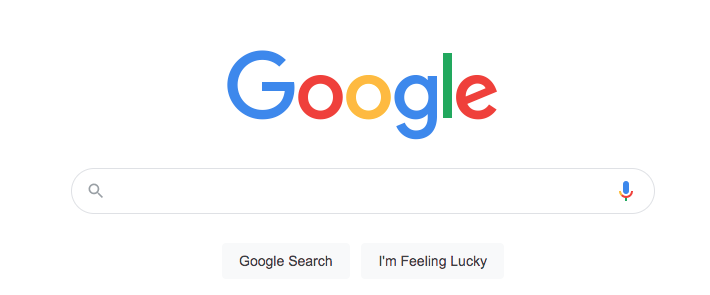Ten years ago you could create niche websites with only a few pages and they would still rank highly on Google. Today it’s a lot more difficult to do this. There’s a lot more competition today and there’s more than 600 million blogs out there in pretty much every topic. Google won’t rank a site immediately either and will often place new websites in what’s known as Google’s sandbox. This is a waiting area for new sites and although Google doesn’t officially recognise the “sandbox”, it exists.

So even if you threw up a website in the hope of ranking it on Google, it might be several months before it ranks. But you can still create niche websites which rank on Google, and the other search engines. It just takes a little more work today than it used to.
Google has updated its algorithms too and consistently does this to give the end user the best experience. Nobody wants to find scrawny, useless, spammy affiliate websites which offer zero value at the top of their search! But if you can keep value in mind when creating niche websites, and focus on quality, they can and do still rank and bring in traffic for free. You can then monetise that traffic and turn it into cash! Here’s how it’s done..
Create Niche Websites: Research
Before you go about creating a niche website it pays to do your research first. Three or five page websites aren’t what they used to be so you’ll need to do better. You’ll need to create some content on your site too to give it the best chance of attaining a ranking for the main keywords you’re targeting.
You can also start with the affiliate product you are promoting, if you choose the affiliate route. You can also monetise with Google Adsense or another advertiser which offers placement ads. See affiliate marketing vs Google Adsense for more on this.

Head over the Google’s keyword planner and type in your main “seed” keyword. That’s a keyword in your niche which you have an interest in or would like to build a site around. You’ll find a tonne of long tail keywords which relate to your main seed keyword. You can then check with Google to find one which is suitable to build a site around. Ideally you want a keyword which gets a good number of monthly visitors and which has little competition in the search results on Google.
Before deciding on a particular keyword to build a site around ask yourself these questions:
- Is the keyword a “buyer” keyword? That is, does it have the potential to bring in targeted visitors? (Think about the intent behind a search for this keyword).
- Does the keyword have enough search traffic?
- Is it too competitive on a simple Google search?
- What are your chances of ranking for it?
See also this article for more info on this.
Create Niche Websites: Buy A Domain Name
Next you can head over to namecheap.com and purchase a domain name which contains your selected keywords in it. If the .com isn’t available find one which is. You can add words to the end to make sure you get your main keywords within the domain name. As an example, this website has been built on the keywords affiliate marketing mentors. The domain name affiliatemarketingmentors.com was taken, so I added “online” to the end to make it work! This site now (at the time of writing) ranks for the keyword “affiliate marketing mentors”.

Although “affiliate marketing mentors” only gets a few hundred views every month, it’s enough to gain some free traffic from the search engines. With some extra work blogging, you can increase this number over time.
Build Your Site
Once you have bought your domain name you can build your site. Make sure you install an SEO plugin to help you create content on it. I use Yoast SEO. See also best free Blog plugins for WordPress.
Once your site is up you can use the keyword planner to find long tail keywords with low SEO difficulty which match your main keywords. Then write content for each of the keywords which are suitable for your site. This should give you lots of content ideas and this will help you build authority with Google.

Write at least 10 articles on your site and ideally create a few backlinks too. Within a few months you should see your site showing up on the search engines. Google typically will make you wait longer than the rest but if you show up on Bing, Yahoo, Duckduckgo etc then you know you’ve cracked it.
The more content you create and of course promote, the better your site will do. Once you have built a niche website once, you should have learned from the experience. You can then go on and build several more.
What To Expect
You can’t expect too much from a niche website straight away and keep in mind that you’ll need to create a lot of content in order to get more traffic. But having your site ranking for its main keywords can give you a huge boost in the beginning. If your main keyword gets 200 monthly hits, and you manage to rank at the top or second on Google, you won’t get all this traffic.

The searches you will get on Google will be divided between the top several sites and any paid results which rank at the top. So for 200 monthly hits for a particular keyword you can only expect about a quarter of this to even find you, assuming you rank at the top. Other hots are shared between the top most highly ranking sites typically. So 200 divided by 4 = 50. 50 hits a month is less than 2 hits a day! So the more search traffic your keyword gets the more traffic you’ll get if you rank your site.
Of course more traffic typically means more competition too so chances are good that with a more competitive keyword you’ll have more work to do to rank your site.
Summary
To create niche websites and get free traffic takes some time and dedication. But with many of these sites you can pick up some fairly easy traffic without paying for advertising. However, your domains all cost money and renewing them costs money too.
So keep in mind that as your niche website collection grows, you’ll be servicing the domain names when they come up for renewal. So it’s worth making them count by doing your research before you start building them. It’s tough when a site doesn’t rank, particularly if you’ve put a lot of effort into it. Don’t despair, just take the knowledge you have learned from one niche site and make the next one even better!